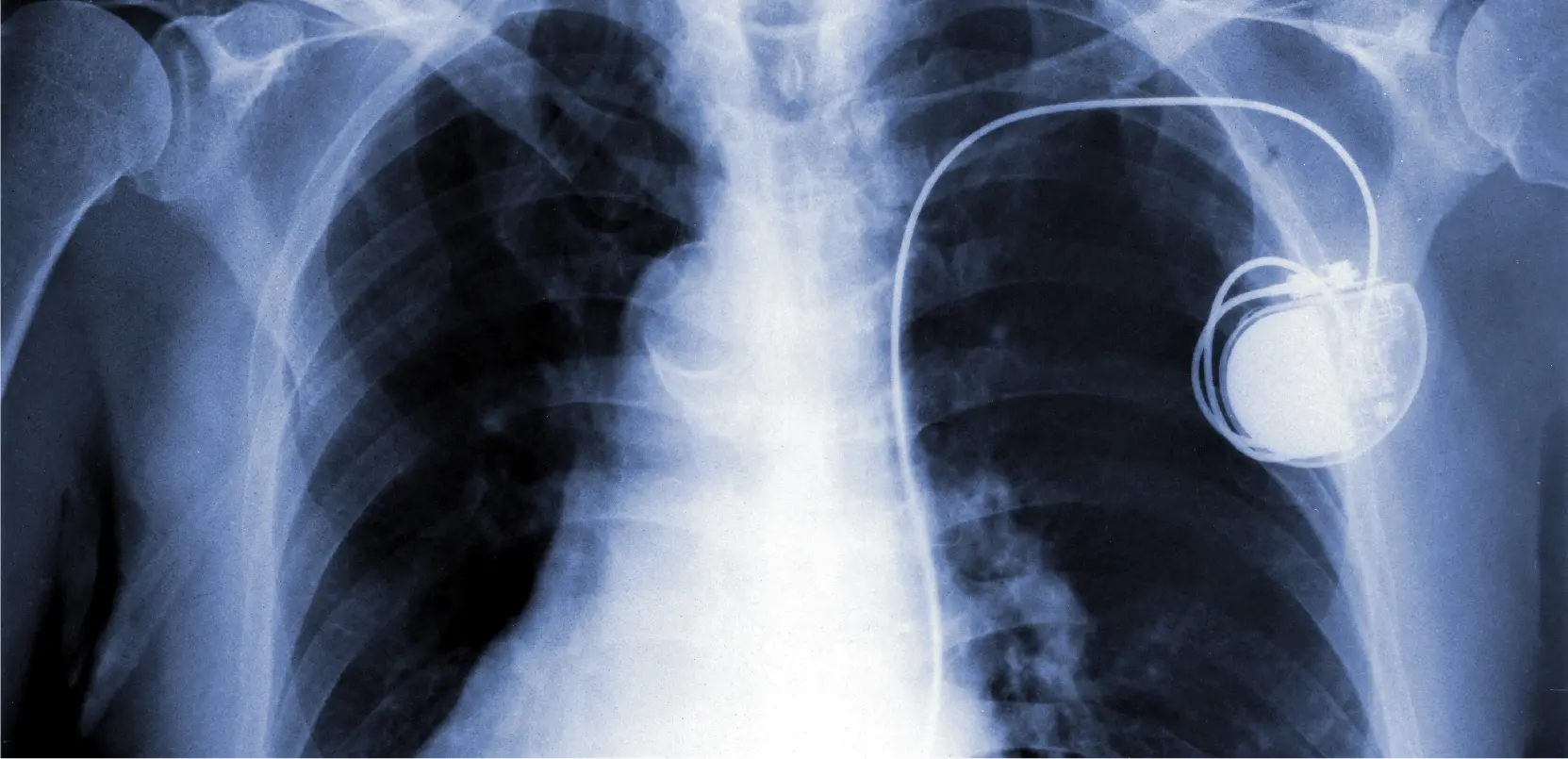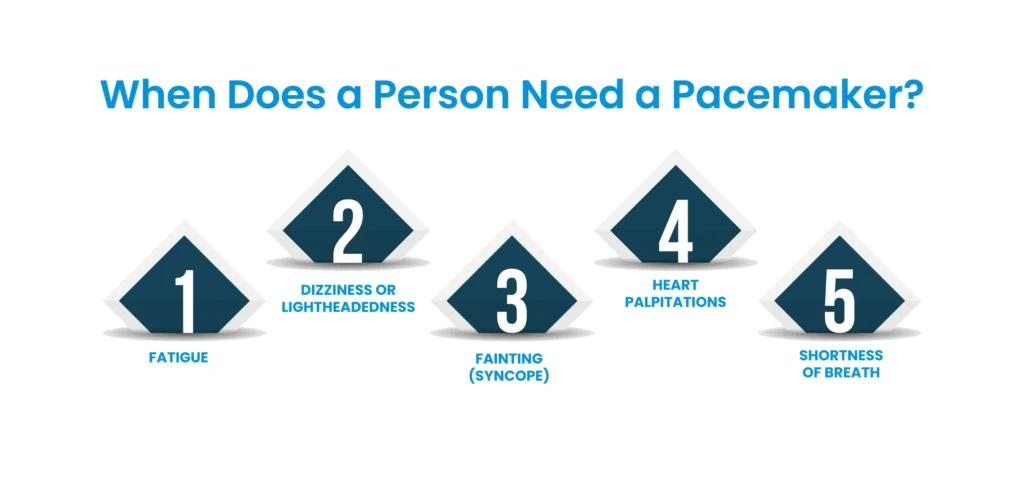

Have you ever felt your heart skip a beat, or like it’s lagging behind during a workout? Maybe you’ve experienced dizziness or lightheadedness for no apparent reason. These could be signs of an irregular heartbeat, a condition that affects millions of people worldwide. While some arrhythmias might be harmless, others can significantly impact your health and well-being.
If you’ve been diagnosed with a slow heart rate (bradycardia) or a specific type of arrhythmia, your doctor might have mentioned a pacemaker as a treatment option. But you probably have questions! What exactly is a pacemaker, and how does it work? More importantly, do you really need one?
Don’t worry—we’re here to explain pacemakers and answer all your frequently asked questions clearly and simply. So buckle up, and let’s get your heart health back on track!
A pacemaker is a small, battery-powered medical device implanted in your chest or abdomen to regulate your heartbeat. Think of it as a tiny internal jumpstarter for your heart. It constantly monitors your heart rhythm, and if it detects a slow or irregular beat, the pacemaker steps in.
Here’s the basic rundown of how it works:
Sensing: The pacemaker has electrodes attached to your heart that constantly check its electrical activity.
Monitoring: It analyzes the heart rate and rhythm.
Stimulating: If the heartbeat falls below a certain rate or becomes irregular, the pacemaker sends electrical pulses through the electrodes to stimulate your heart muscle and get it beating back at a normal rhythm.
During an EKG, small electrode patches are attached to the skin on your chest, arms, and legs. These electrodes detect the tiny electrical changes on the skin that arise from the heart muscle’s electrophysiologic pattern of depolarizing during each heartbeat. It’s a quick, non-invasive, and painless test that provides valuable information about your heart.
Now that you understand how a pacemaker works like a trusty internal metronome, you might be wondering: Do I need a pacemaker? The short answer is, that a pacemaker is typically recommended for people with specific heart conditions that affect their heart’s rhythm.

Not every bump or flutter in your heartbeat necessitates a pacemaker. This tiny but mighty medical device plays a crucial role in specific heart conditions, ensuring your heart maintains a healthy rhythm and keeps you feeling your best.
So, which specific heart conditions necessitate the use of a pacemaker? Here’s a closer look at the most common scenarios:
Bradycardia refers to a heart rate that falls below the recommended range, typically less than 60 beats per minute. This sluggish rhythm can lead to insufficient blood flow, causing symptoms like fatigue, dizziness, or even fainting.
A pacemaker functions as a reliable backup conductor in such cases. It meticulously monitors the heart’s electrical activity. If the rate dips below a safe threshold, the pacemaker delivers gentle electrical impulses to the heart muscle, prompting it to contract and maintain a healthy rhythm. This ensures adequate blood circulation, promoting overall well-being and preventing potentially debilitating symptoms.
The heart relies on a well-defined electrical pathway to coordinate its pumping action. However, a condition known as heart block disrupts this pathway, hindering the electrical signals from reaching certain areas of the heart. This disruption can result in missed heartbeats or a slow, irregular rhythm.
a pacemaker proves invaluable in addressing heart block. It acts as a bypass, sending electrical signals to circumvent the blockage. This ensures consistent electrical transmission throughout the heart, promoting regular contractions and preventing complications such as dizziness or shortness of breath.
Atrial fibrillation (AFib) is a prevalent arrhythmia where the upper chambers of the heart, known as the atria, beat irregularly and haphazardly. This disrupts the overall heart rhythm and can increase the risk of blood clot formation.
In certain AFib cases, a pacemaker can be a crucial management tool. It helps regulate the rhythm of the atria, preventing them from going into overdrive and ensuring a more consistent heart rhythm.
The aforementioned conditions represent the most common scenarios where pacemakers play a vital role. However, their application extends to other arrhythmias as well, depending on the specific type and its impact on heart function.
Your doctor will conduct a comprehensive evaluation to determine whether a pacemaker is the most suitable treatment for your individual case.
If you’ve been diagnosed with a heart condition requiring a pacemaker, you might have questions and concerns.
The Procedure:
Your doctor will discuss the specific type of pacemaker recommended for you and answer any questions you may have. You’ll likely undergo routine blood tests and imaging scans to ensure you’re healthy enough for the procedure.
Pacemaker implantation is typically a minimally invasive procedure performed under local anesthesia with sedation. A small incision is made in your chest, and one or more thin wires (electrodes) are inserted into your heart. The pacemaker itself is then placed under the skin near your collarbone. The entire process usually takes one to two hours.
After the procedure, you’ll be monitored in a recovery room for several hours before being discharged home, typically on the same day or the following day. During recovery, you’ll need to avoid strenuous activity and protect the incision site. Your doctor will provide specific instructions on limitations and follow-up appointments.
Living with a Pacemaker
You might feel some discomfort or soreness around the incision site for a few days after the procedure. This is normal and can be managed with pain medication. It may take some time to adjust to having a pacemaker, but most people experience minimal disruption to their daily lives.
Your doctor will advise you on any activity restrictions you might need to follow initially. However, most people with pacemakers can resume their usual activities, including exercise, after a healing period.
Regular checkups with your doctor are crucial to ensure your pacemaker is functioning correctly. These appointments typically involve a quick examination and a test to evaluate the pacemaker’s settings and battery life.
Additional Considerations:
Pacemakers are sensitive to certain electronic devices that emit strong magnetic fields. Discuss any concerns with your doctor, and they can advise you on safe distances to maintain from these devices.
Pacemakers may trigger metal detectors at airports or security checkpoints. Inform security personnel about your pacemaker and carry a medical identification card.
So, there you have it! Pacemakers are tiny technological marvels that can make a big difference in your heart health. If you’re concerned about your heart rhythm, don’t hesitate to talk to your doctor. Early detection and treatment are key to keeping your heart happy and healthy. Remember, knowledge is power, and this blog is just the beginning of your journey towards a strong, steady heartbeat. Take charge of your heart health today!
Talk to an Expert Now